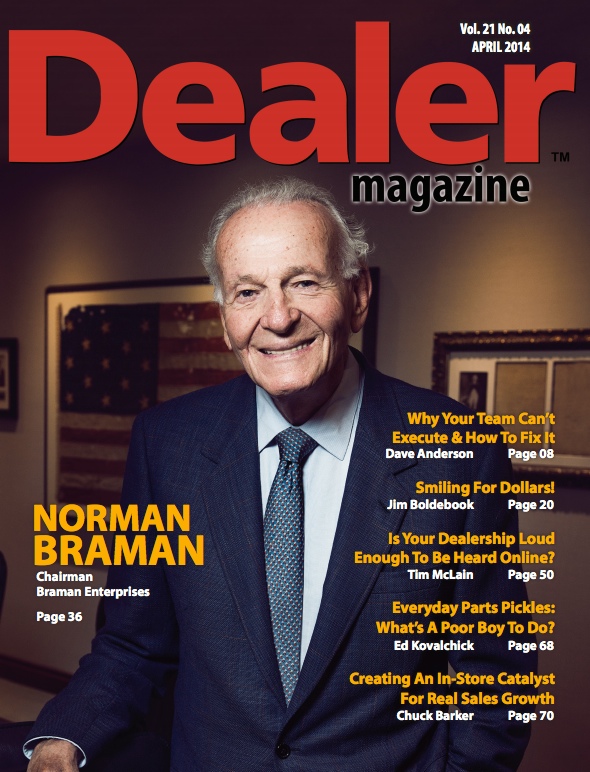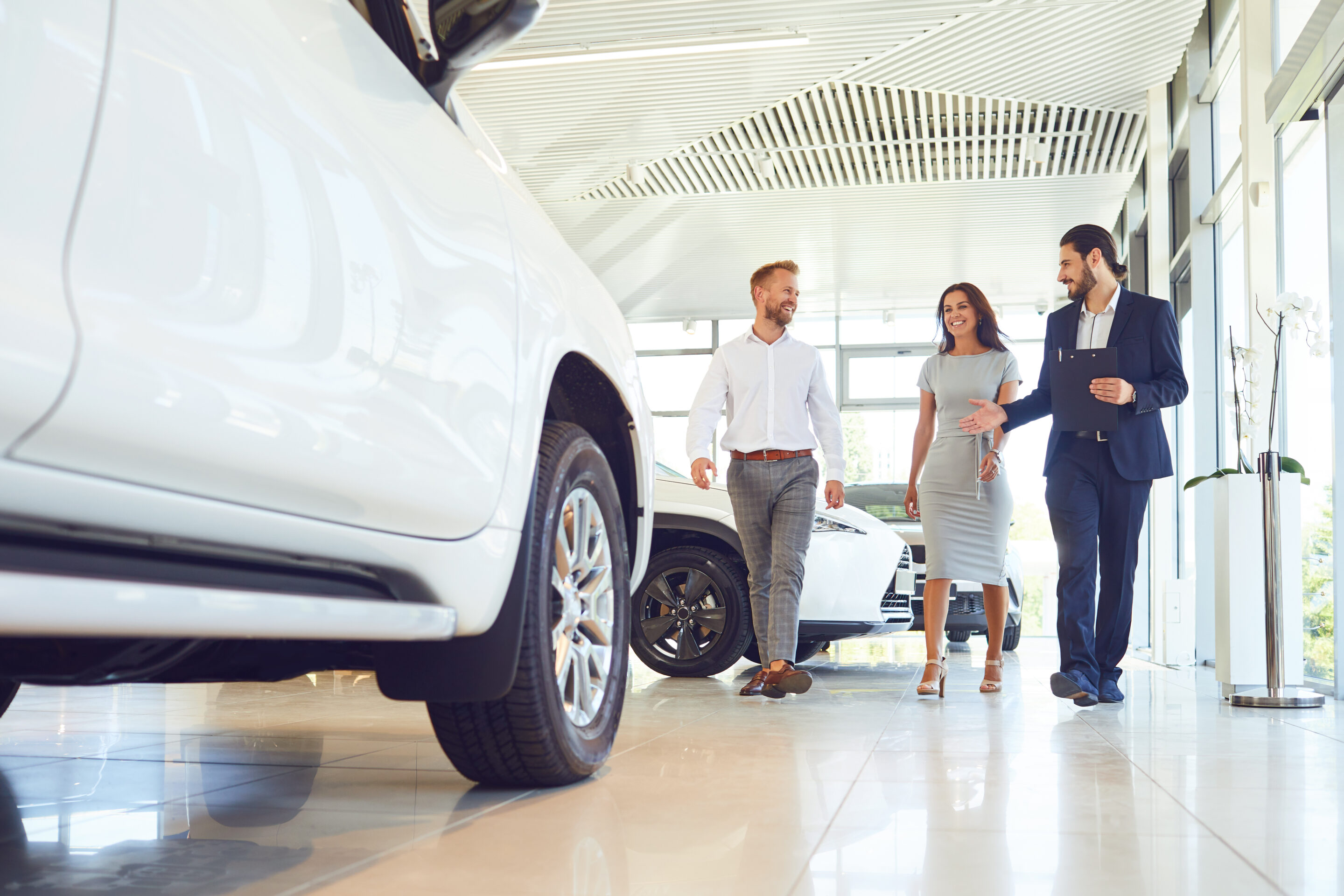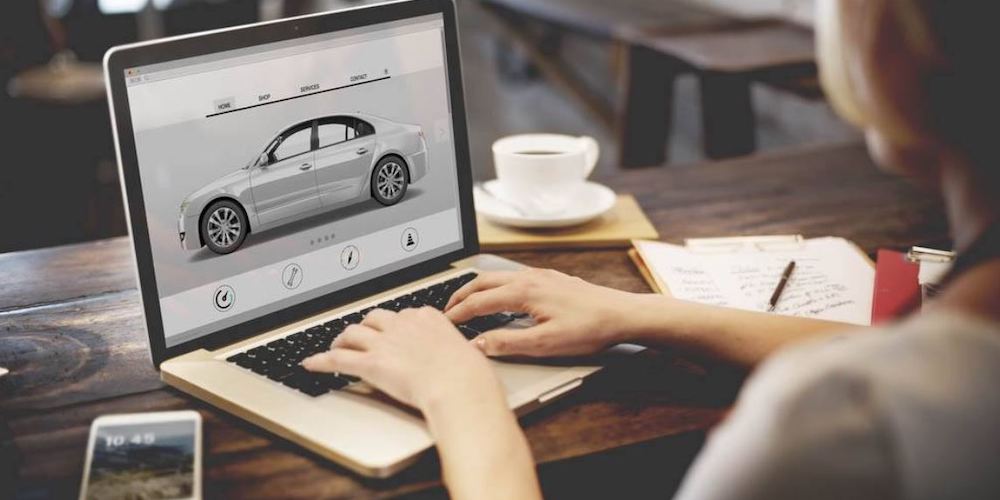 Norman Braman is one of the most successful car dealers in the US. At age 81, Forbes has pegged his personal wealth at about $1.9 billion in part to a vibrant art collection along with his automotive business.
Norman Braman is one of the most successful car dealers in the US. At age 81, Forbes has pegged his personal wealth at about $1.9 billion in part to a vibrant art collection along with his automotive business.
Consisting of 23 dealerships, Braman Enterprises has dealerships in Florida and Colorado, and is one of the top selling dealer groups in the country. Braman sells brands such as Bentley, Bugatti, Acura, Audi, Kia, Honda, Hyundai, Rolls-Royce, Porsche, MINI, Cadillac, Mercedes and BMW.
Last year, the group sold 21,500 new vehicles (50% of which were luxury) and 10,500 pre-owned. Meanwhile, 2012 and 2013 generated record profitability for the group. Braman Motors in West Palm Beach and Miami are two of the best-selling luxury dealerships in the country and consistently amongst the top grossing dealerships in the nation, based on total revenue.
Norman Braman is feisty, charming, and incredibly motivated. He is a community activist, passionate and vocal about issues he sees affecting the community in which he lives. He recently spent nearly $1 million of his own assets in a successful recall of Miami’s mayor. He’s currently engaged in a battle to keep gaming from becoming more entrenched in Miami.
He and his wife of 58 years, Irma, are aggressive philanthropists, financing the Braman Breast Cancer University in Miami along with being instrumental in bringing the annual Art Basel Festival to Miami, a critical piece that has helped turn Miami into one of the leading performing arts locales in the world.
Dealer magazine sat down with Mr. Braman and his CFO Robert Bernstein at the company headquarters located on Biscayne Blvd. in Miami to talk about his success as a dealer.
A Dealer Magazine Exclusive Interview with Norman Braman
Mr. Braman, you were a noted young philanthropist and successful entrepreneur even before entering the auto industry. Tell us how you started.
I began at Seagram’s following graduation from Temple University.
A couple of years later, I started Keystone with my wife’s father. I was very fortunate that it developed into a public company with Philadelphia Pharmaceuticals where I became a substantial shareholder in 1969. Then, I had an opportunity to sell my interest in the company when I was 36 – which I did.
Not long after that I headed to Florida with my wife and two young daughters. I’ve been fortunate my entire life. Timing and luck have played a big part in my success.
It was about 1972 when you bought your first dealership, correct?
That deal in 1972 was more of an investment. I didn’t really become an active and full-time owner until I bought the Cadillac store in Miami in 1975.
So I had a nice few years in South Florida with my wife and daughters from 1969 to 1975.
Once you started in automotive, did you ever think you were going to become this big?
No. I had no idea that was going to happen. The first home we purchased here in Florida was in Coral Gables and there was a house boat docked in the back of that house. A part owner of that house boat was George Williamson. (Editor’s note: George Williamson had founded Williamson Cadillac in Kendall, FL a few years earlier — now run by his son Ed, his wife Carol, and grandson Trae).
He asked if he could keep the boat docked there until we moved in. Of course, we said yes. George was very grateful and told me that any time I needed to buy a car, he would take care of me.
What ultimately led to the investment in the first dealership was this: One of my principal people at the company I had just left in Philadelphia was one of those who didn’t do well with the new management. That’s not uncommon.
He had come from the automobile business and had been a sales manager for a Cadillac Chevrolet dealer in Lebanon, PA. He asked me if I knew anybody in the automotive business. So I called George Williamson and he put me in touch with a guy named Buddy Braun who was looking for an investor in a Chevrolet store in Naples, FL. That also would provide an opportunity for my friend up North.
So retirement was over, and you decided to invest in the dealership?
Yes. I saw the the financial statements and frankly, I was kind of surprised. I had honestly believed that dealerships were, for the most part, ‘big mom and pop’ type stores. I had no conception of the kind of money that was involved. It was just ignorance on my part at the time.
We entered into an agreement to invest in the store with Braun. Everything was supposed to be signed, sealed and delivered.
Then he called me to say he was sorry but could not go through with the agreement.
Of course, I wasn’t the happiest guy in the world as a result of that.
He told me to send him all of my accounting and legal bills that I incurred from putting the deal together and that he would pay them. I thought that was nonsense. I didn’t think I’d ever see that money.
I sent the bills to him, and he paid the bills. Four or five months later, he called to explain why the deal didn’t go through. A Cadillac dealership in Orlando had become available and he had decided to withdraw from the Chevy deal and instead acquire the Cadillac one. He asked me if I would invest in that deal with him.
I said yes, and that was really the beginning of it for us.
Not long after that, in 1972, I was able to acquire a major interest in a Cadillac store in Tampa. As a result, I spent some time in Tampa. The general manager there was Jeanette Jacoby, who at the time was the only female general manager in a Cadillac dealership.
You were blazing a trail back then.
True. In fact, she may not have been the GM when I bought the store. I think she was the controller at the time and knew a lot about the business, so we made her general manager.
How long after that did you begin expanding into Miami?
It was 1975. I received a phone call from Connor Brown, who had married Claude Nolan’s niece. Brown was the distributor for Cadillac and other GM products in the Southeast.
Cadillac was dismantling its distributorships at the time and Brown was the last holdout. They controlled the entire Florida market except for two or three dealerships. And GM was forcing them to sell.
So, he called me to offer me a chance to buy the Cadillac dealership in Miami. I reached an agreement with him. It was a quiet deal because at the time, many of the lucrative deals were going to family members or friends of GM executives – or even to executives themselves who had retired.
With that, it was the beginning for us here in Miami.
(Editor’s note: Claude Nolan built a large distributorship in Florida prior to World War II. After he passed away, Brown took over the business and was the last holdout still distributing vehicles to other GM dealers. The Claude Nolan Cadillac store in Jacksonville is still in the family, now run by Marc Helmick, Brown’s grandson).
Describe those early years.
I didn’t know anything about the car business, but I did know Victor Potamkin and wanted to sit on someone’s knee to find out and learn a little bit about the business. Victor was at the forefront at the time with Cadillac in New York – as was Jim Moran in Chicago – with the start of mass marketing and merchandising of automobiles, — something that wasn’t looked on too favorably by the manufacturers.
I went up to New York and started spending some time with Victor. I studied his advertisements and marketing. I respected Victor because he really changed the face of marketing for car dealers.
I also asked myself how I would want to be treated if I was a customer at an automobile dealership. From that, we started developing programs here to boost customer satisfaction.
The truth is, it was a very difficult time around here. I had not realized how terrible a reputation the previous dealer had here in Miami. It had been the only show in town. When my wife and I went out, we were besieged by people with complaints.
Cadillac was the only game in the luxury market. Mercedes was just getting started; no one knew anything about BMW or Audi in 1975.
Those were tough times. I started avoiding large get-togethers in the community because I was getting attacked for lousy service.
How did you begin digging out of that?
Well, I learned from the school of hard knocks. I went out into the service department and spent a lot of time there myself so I could learn and see how people were being treated. I also was on the floor selling cars which I didn’t know anything about.
That was the beginning of my education in the car business.
You mentioned how GM restructured its retail network here in Florida in the 70’s. It seems like there is pressure today to go back to larger stores while streamlining the network.
Now you’re getting into a major point of contention I have with manufacturers in general. What mystifies me about this whole thing is that dealers in the U.S. set the pace for dealers all over the world.
We have manufacturers who think they know more about the retail business than the successful dealers who have made their businesses what they are today.
I mean this not with respect to the manufacturing and design of vehicles, but someone from Germany, Japan, Korea or anywhere else in the world telling you how a showroom should look or how desks and cars should be aligned is absurd and doesn’t account for cultural differences and shopping expectations.
We’ve gone through the years and we’ve learned from trial and error — what works and what doesn’t.
I won’t ask you about the settlement with General Motors resulting from your lawsuit with them in the last couple of years, but I have to ask about the suit, because it seemed at the time that you weren’t going to settle.
I’ll only say this – I think we were both satisfied with the settlement. No dealer likes to be in conflict – especially legal conflict – with its suppliers. But sometimes one has to take a stand.
Looking outside, you have a lot of construction going on.
That’s right. We’re spending $80 million in facility upgrades over the next two years — $37 million of that right here on Biscayne Blvd.
We’re adding 500,000 sq. feet of space, 90,000 additional sq. feet of showroom space; much of which will accommodate our pre-owned business better. In Miami we are expanding our Mini, Rolls Royce, and BMW dealerships.
North of here, we’re building a new BMW dealership in Jupiter. We’re building a new Audi store in West Palm Beach along with a new MINI dealership and Porsche dealerships there. We’re also expanding our Rolls Royce dealership and building a new Bentley store up there.
We’re doing all this now. We’ve also just expanded our Mercedes facility in Denver and are putting a new Porsche facility there also.
We’ve also built a service facility with 150 bays. This is an example of the huge investments dealers have to make in their facilities without factory financial assistance.
We’re figuring out where we want to be in the next 20 years. That’s what’s guiding us. I’ll be 82 years old on my next birthday – but I’ve always believed if you’re standing still, you’re going backwards.
Are you looking to add stores?
If the right situation came along – and they seldom do. But this is a management game. You have to have management. We have excellent management in all of our dealerships.
My philosophy is to have a large pie with many slices. Every single one of our general managers has equity in their stores. That works for everyone. Our general managers do their own hiring, firing and their own advertising.
We maintain very strict financial reporting and legal controls. However, our managers have been with us a long time and they are partners of mine. They are wonderful people.
We’ve gone through the difficult periods incredibly well. At no point have any of our companies or stores been in the red. Not one. We didn’t lay off large numbers of employees or cut health benefits.
I don’t need to concern myself with earnings per share. As long as we’re maintaining positive cash flow which we did from 2008 to 2010, it’s worked out well.
It’s also a capital-intensive business today, much more than in the past.
What’s your toughest challenge today?
The manufacturer. They have lowered our gross margins drastically and seek to control every aspect of a dealer’s operations – as if they were the entrepreneur. Recently, they signed a deal to provide independent repair shops with special tools and manuals for post-warranty repairs. Still, even though we sometimes have to argue with them, we have maintained terrific personal and business relationships with them.
They are our partners but some of their actions in terms of facilities and demands are incredible and don’t make sense. They rarely consider the local market, where you are or what you’re doing. They don’t consider the tremendous success that dealers have had through the years or the enormous investments dealers have made.
This area where we are right now, in downtown Miami, used to be a hotbed of dealerships. When everything changed, everyone moved out. I wish we had 20 other dealerships located here. I would do more business. Competition is good and it’s the essence of success.
We received tremendous pressure from the manufacturers to move out of the area. Remember, racial conflicts occurred only a few blocks from here. It became a really tough area.
But we stuck with it.
And now, Miami’s coming back.
You’re right. It has come back big time. Our business was never really down. Of course, we were affected by it but not to the point we were losing money. This business has enabled me to buy an NFL football team and allowed me to engage in major philanthropy for which I’m grateful to be part.
As I said, I think the major challenges today are manufacturer-related, and also government-related regulatory actions, but experience has shown that without dealers, factories have trouble being successful.
You’re known for your passion and being outspoken regarding the community and local politics.
It’s my community. My children are here. I live here and have an investment in it. I feel it’s an obligation to help improve the quality of government and life. As different issues come up, I like to be involved.
We’re being threatened now with the expansion of gambling here, which I am very much opposed to.
Is that going to pass?
I think it’s a battle in the state legislature. I am very involved in that fight and am going to stay involved in it.
It sounds like hotels such as the Fontainebleau in Miami already have rooms set aside to move the gambling equipment in once it passes.
They do, but the Malaysian company Genting purchased several acres not far from here. They came here to the office to meet with us and told me we could sell another 1,000 cars if they were able to bring gaming here.
I told them it’s not a matter of cars. We don’t need them. Selling another 1,000 cars is not going to affect the quality of my life. Our community has made enormous strides the last several years with a vibrant performing arts facility. The Art Basel festival which I chair is like the Super Bowl of the art world every year.
The crime and the negative effect on families that gaming brings – we don’t need that here.
Looking around this room, you have quite a group of artifacts, historical documents.
Yes – I collect. When my grandkids entered high school, I wanted to maintain a discourse with them. I’m a history buff and I thought what better way to do that than to begin an interest in historical documents. The kids became interested in it and you could say I became a junkie collecting it.
Are you still a Philadelphia Eagles fan?
Oh, yes. I still have a lot of friends from those days. I don’t miss football at all, though. If you’re a competitive individual like I am, it’s a tough business. It took over my life 365 days a year, 24 hours a day. During the season if we lost a game, I didn’t sleep for four or five days. If we won, I was so excited I couldn’t sleep for two days.
I had a serious problem with my cervical spine in 1991, and I knew I wouldn’t be around if I didn’t change my way of life. I decided the first thing that had to go was the football team.
What made you want to buy the Eagles?
Sentiment. They trained in West Chester and when I was a child, my aunt had a house right next to their training facilities. I even worked as a water boy one summer for them.
The city of Tampa came to me in the 1980’s wanting to buy the land the Cadillac store was on so they could build a convention center. The cash from that deal is the same money I used to buy the Eagles.
It didn’t take any genius on my part.
At the time, there was talk of the Eagles leaving Philadelphia and I felt there would be something missing. So I decided to buy them.
Tell us about your philosophy of leadership. Robert (Bernstein, Braman’s CFO) was telling us you don’t even have a company credit card. Also, that family members have to pay for their vehicles. That seems to me that it establishes the tone; the right DNA from the top.
He’s right, I don’t have a company credit card. None of us do. I’ve never had anyone from the company come and do work on my house or provide personal services to me or my family.
I don’t spend company money when I get involved in political issues – all of that is out of my own pocket.
I’ve always believed it was important for me to set an example. You see, it’s more than a philosophy of leadership. It’s about life. All we have in life is our name.
I guess I got a lot of that from my parents – who never drove a car by the way. My dad was a barber and my mom worked as a seamstress. I’m a first generation American citizen like so many of my employees are.
I remember when I was 12 walking with my dad and he stopped and pointed out a Cadillac. “Someday, if you work hard and go to school and graduate from college you can own a car like that,” he said. I still remember the corner that car was on. That stuck with me my entire life.
What do you see in the future for automotive?
I think there will be a period of great prosperity because the U.S. is quickly becoming self-sufficient in energy. I think that will have a huge effect in the automotive industry.
I’m excited about BMW’s i3 electric vehicle and Cadillac’s ELR, although I do believe the internal combustion engine is here to stay.
Despite the challenges, the business is good, and I like what’s happening.








